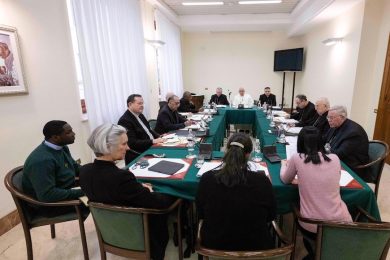VATICAN CITY (CNS) — The Italian health ministry’s liberalization of recommendations for using RU-486 to induce an abortion is a further sign that the government is moving away from its promise to help women and families facing an unplanned pregnancy, the Pontifical Academy for Life said.
Guidelines issued Aug. 12 by the health department remove the recommendation that pharmaceutical abortions take place only in a hospital, and they allow the use of the drugs up until the ninth week of pregnancy, rather than the seventh.
A pharmaceutical or chemical abortion involves the administration of mifepristone — commonly called RU-486 — which blocks the hormone progesterone that is needed for a pregnancy to continue, and misoprostol, taken two days later, which stimulates uterine contractions to expel the fetus.

In a statement Aug. 14, the Pontifical Academy for Life noted that Italy’s 1978 law legalizing abortion “opens with the demanding affirmation that the state, guaranteeing the right to conscious and responsible procreation, ‘recognizes the social value of motherhood and protects human life from its beginning.'”
“It is in this perspective that, while allowing the voluntary termination of pregnancy under certain conditions, the same Article 1 goes on to deny that the latter can be considered ‘a means of birth control,'” the note said.
The failure of the state to maintain its promise to support pregnant women and their families is seen in the new guidelines, which in effect allow women to receive the abortion-inducing drugs in a clinic and then abort at home, the academy said.
“We are talking about the commitment to truly give the woman, and the couple, all the support possible to prevent the abortion, overcoming those conditions of distress, including economic, that can make the interruption of a pregnancy an event that is undergone more than chosen because it occurs in adverse circumstances in which the idea of having a child becomes difficult or even untenable,” the academy’s note said.
The law legalizing abortion also recommended women first see a counselor who would advise her of her rights, but also assist her in finding the economic and emotional support she would need to continue her pregnancy.
The Pontifical Academy for Life said there had been a “declining effectiveness” of the government-paid counselors to provide that assistance, and the new rules for administering RU-486 are a further example of placing an even greater burden directly on the pregnant woman.
Accompanying and supporting pregnant women and their unborn babies “remains the proving ground of an attentive and sensitive society that knows how to build its future with wisdom and farsightedness,” the note said.






















